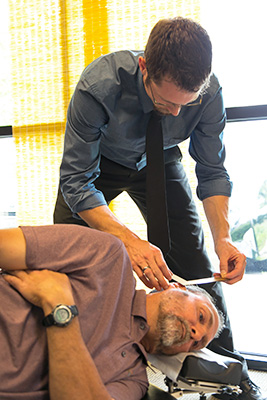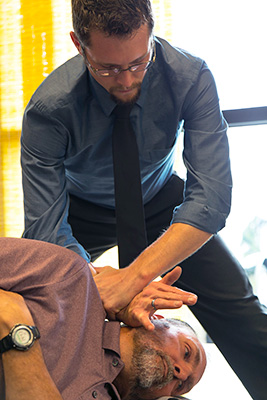 Roy Williams, coach of the North Carolina Tar Heels collegiate basketball team can attest to the fact that vertigo can affect anyone. During last season in February of 2016, the coach had to exit prematurely from a game after collapsing due to a vertigo spell. What is vertigo, and how is it treated?
Roy Williams, coach of the North Carolina Tar Heels collegiate basketball team can attest to the fact that vertigo can affect anyone. During last season in February of 2016, the coach had to exit prematurely from a game after collapsing due to a vertigo spell. What is vertigo, and how is it treated?
Vertigo is that feeling of everything spinning that most people confuse with dizziness. Also, contrary to popular belief, you don’t have to be high up and looking down to experience vertigo. In fact, the dizzy feeling people get from heights is called acrophobia (or fear of heights).
Vertigo is primarily associated with 4 health conditions:
Most general practitioners will prescribe medication to treat the symptoms of vertigo. Various antihistamines, anticholinergics, and sedative-hypnotics have varying degrees of success for patients. However, because these medications do not treat the underlying cause of vertigo, relief is often short-lived. Plus, medications come with a long list of unwanted side effects. Do you want to try to find natural relief?
Upper cervical chiropractic involves correcting misalignments of the C1 and C2 vertebrae at the base of the skull. Such a misalignment can cause pressure on the brainstem or spinal cord and may reduce the flow of blood and cerebrospinal fluid. Correcting the subluxation can often relieve the resulting symptoms such as vertigo. To learn more about how upper cervical chiropractic can help relieve vertigo, contact us and schedule a consultation.
To schedule a consultation with Dr. Joe Perin, call our Vancouver office at 360-569-1740. You can also click the button below.
If you are outside of the local area, you can find an Upper Cervical Doctor near you at www.uppercervicalawareness.com.


